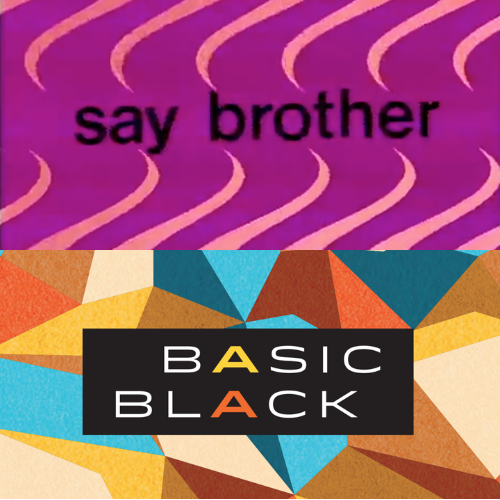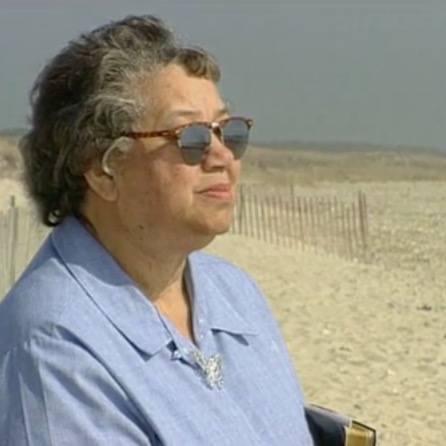Say Brother/Basic Black
Other Resources
- List of Black-Produced TV Shows Nationwide, from 1968-on
- Televising Politics in the Black Power Era: Black Journal and Soul!
- The Soul of Black Identity: Artist Interviews of the Post-Soul Era
- Basic Black Timeline
- Basic Black, "Memorable Episodes"
- 50 Years of Basic Black: Then and Now
- GBH News Rooted
Collection Summary
The Say Brother/Basic Black Collection includes just under a thousand episodes, episode segments, and interviews from GBH’s longest-running public affairs television program produced by, for, and about the Black community. Say Brother (1968-1997) premiered three months after the assassination of Martin Luther King, Jr. and gave voice to Black perspectives during a period of racial protest and rapid social change. In 1998, Say Brother became Basic Black (1998-2024), a title that producer Cynthia Johnson felt was more inclusive of women.
From the outset, Say Brother served as a forum for activists to critique the racial status quo and for Black writers, musicians, and artists to showcase Black culture. Say Brother tackled local and international issues of vital interest to Black Bostonians, including the Black Power Movement, liberation struggles in Africa, the Equal Rights Amendment, the rising cost of housing in the Boston area, and the legacy of the Vietnam War. Episodes also addressed topics in world history and culture, such as the ethnic history of Puerto Rico, racial stereotyping in the 19th century, and Africa’s contribution to ancient Greek, Roman, Chinese, and Middle Eastern civilizations.
Basic Black continued the work that Say Brother began, covering issues affecting people of color in Greater Boston and beyond. Episodes tackled social injustices, such as racial profiling, discriminatory lending, and medical racism. Other episodes celebrated the positive impact of local community organizations, and in a roundtable discussion following the 2008 presidential election, panelists voiced cautious optimism about the significance of Barack Obama’s election for the future of Black America. Like Say Brother, Basic Black explored the past’s relevance for the present, with episodes reflecting on the role of Black Bostonian merchants in the 19th century abolition movement, the history of the relationship between African Americans and Irish Americans in Boston, and the experiences of African American soldiers during the Korean War. Basic Black also celebrated Black culture through musical performances, poetry readings, and discussions of theater and film.
The Say Brother/Basic Black Collection includes interviews and candid discussions with African Americans in the arts, including novelists Walter Mosley, Alice Randall, Wole Soyinka, Ngugi wa Thiong'o, and Alice Walker; poets Maya Angelou, Amiri Baraka, and Nikki Giovanni; and an array of filmmakers, actors, choreographers, dancers, and visual artists. Episodes also feature interviews with scholars and historians, such as bell hooks, Lani Guinier, and Annette Gordon-Reed; and activists and politicians, including Stokley Carmichael and Bobby Seale, key figures in the Black Power Movement; civil rights activist and Georgia State Senator Julian Bond; and activist-turned presidential candidate Jesse Jackson.
Collection Background
In April 2000, the National Endowment for the Humanities awarded WGBH Media Library and Archives (now GBH Archives) an Archives and Special Collections Preservation and Access grant. The grant funded the arrangement, description, and reformatting of master tapes of Say Brother from 1968 to 1982 and efforts to improve access to the collection. In 2025, coinciding with the reimagining of Basic Black as a digital-first program titled GBH News Rooted, the collection was expanded to include episodes of Basic Black as well as additional episodes of Say Brother.







